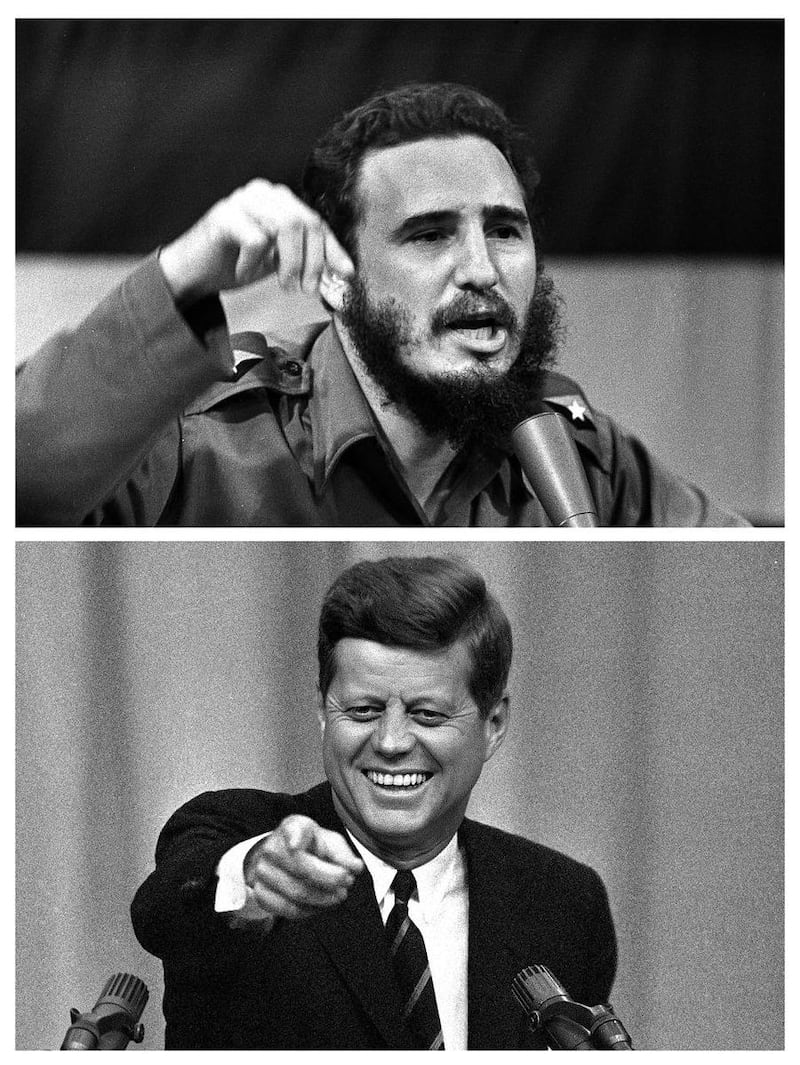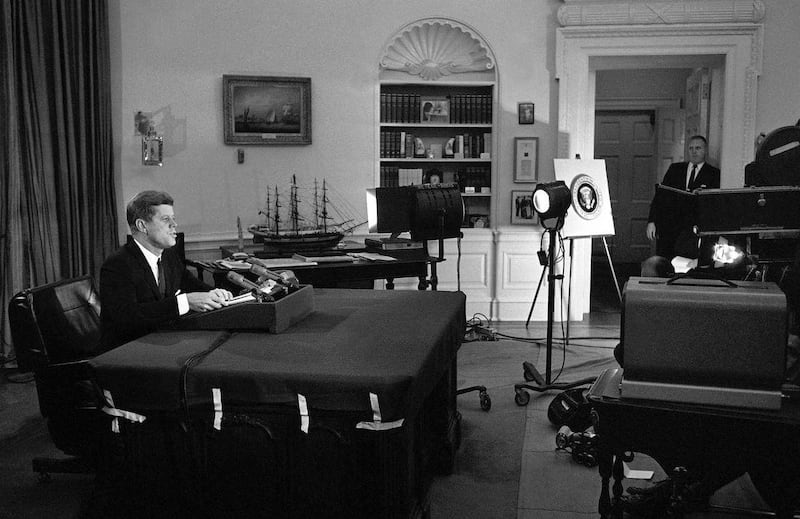Editor’s note: This story was originally published on Oct. 22, 2024.
A look back at local, national and world events through Deseret News archives.
On Oct. 22, 1962, in a nationally broadcast address, President John F. Kennedy revealed the presence of Soviet-built missile bases under construction in Cuba and announced a naval blockade of all offensive military equipment being shipped to the Communist island nation.
The Cuban missile crisis of October 1962 was a direct and dangerous confrontation between the U.S. and the Soviet Union during the Cold War and was the moment when the two superpowers came closest to nuclear conflict.
Historians say the crisis — which came to the forefront on Oct. 16 and was deescalated about Oct. 28 — was unique in several ways, featuring calculations and miscalculations as well as direct and secret communications and miscommunications between the two sides. The dramatic crisis was also characterized by the fact that it was primarily played out at the White House and the Kremlin level with relatively little input from the respective bureaucracies typically involved in the foreign policy process.
Perhaps that’s why Kennedy’s nationally televised address is so widely remembered.

“JFK prepares U.S. for high urgency,’ read the top headline of the Deseret News on Oct. 22, as four of the top five stories detailed actions and reactions from key players in Cuba, the U.S. and Soviet Union.
The other prominent story was an armed showdown between China and India along India’s border.
Here is a collection of stories from Deseret News archives about the crisis, the personalities — Kennedy, Nikita Khrushchev and Fidel Castro — involved and the Cold War in general:
“Opinion: What can we learn from America’s historic response to a nuclear crisis?”
“Documents show JFK retreated from his pledge not to invade Cuba”
“Archives to recount JFK’s Cuban missile crisis”
“‘62 Cuban missile crisis brought fear closer to home”
“JFK secretive — but brilliant in crisis”
“Castro at 75: still swollen with hatred of America”



